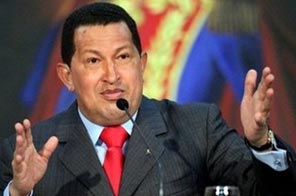Govt orders closure of 34 radio
CARACAS: The Venezuelan government has ordered the closure of 34 radio stations, the head of national telecommunications regulator Conatel said Friday, in the latest bid to rein in the country's media.
"They will have to cease transmission once they have received the order from Conatel," said Diosdado Cabello, who is also minister of public works in President Hugo Chavez's leftist government.
Cabello said the closures were due to the stations' failures to meet legal operating requirements, and warned that more closures may follow.
"These are the first 34 decisions that we have taken," he said.
The stations broadcast in Caracas and various cities in the country's interior.
Among the best known is CNB, which airs in Caracas and nearby Valencia, and is part of national network that has been critical of the Venezuelan president.
Other stations had virtually ceased broadcasting.
Last month Conatel launched a survey of radio broadcasters, asking outfits to present documentation showing the validity of their licenses.
An estimated 240 radio broadcasters have come under pressure during Chavez' time in office.
Cabello defended Friday's move. "This is about legitimate authority of the government to manage the radio spectrum," he said.
"We are only implementing what the law says... when we took the decision to democratize the radiowaves we were serious, we needed to do it and we needed to do it now."
Cabello had earlier accused 27 families of holding "privileged ownership" of 32 percent of the radio broadcast industry.
Some 45 television stations are also said to be in the firing line.
The Venezuelan Chamber of Radio Broadcasters described the decision as a "enormous violation."
Ahead of Friday's announcement Chavez came under fire from Human Rights Watch, a pressure group, for "censorship" and "abuse of power."
Chavez supporters argue that the measures limiting broadcasting rights for radio and television will lead to a significant "democratization" of the media, which has been controlled by a handful of owners.
The president said the government is developing eight new laws or reforms of existing laws that will have an impact on the media, including one that establishes a new set of "media crimes" punishable with prison sentences.
Human Rights Watch said the measures would "reduce the ability of government critics to voice their opinions and will seriously limit freedom of expression in Venezuela."
Information minister Blanca Eekhout said the proposals were "absolutely vital" to regulate the "enormous power" of the media.
Critics believe the move is part of Chavez's payback to the media owners, whom he reportedly never forgave for backing a failed coup against him in 2002.
The government refused to renew the license of RCTV (Radio Caracas Television), the country's oldest and most popular television network, in May 2007 because of its news coverage critical of Chavez. Although off the air, RCTV continues to be seen in Venezuela from Miami via cable and satellite systems.
Until now media companies and executives have been subjected to administrative penalties for running foul of the government, but if the proposed changes are adopted they could face criminal charges in the future.
"This is part of a strategy by a government with a military bent that sees communication as a strategic objective that needs to be neutralized," said a manager of a local media outlet who spoke recently on condition of anonymity for fear of retribution.






